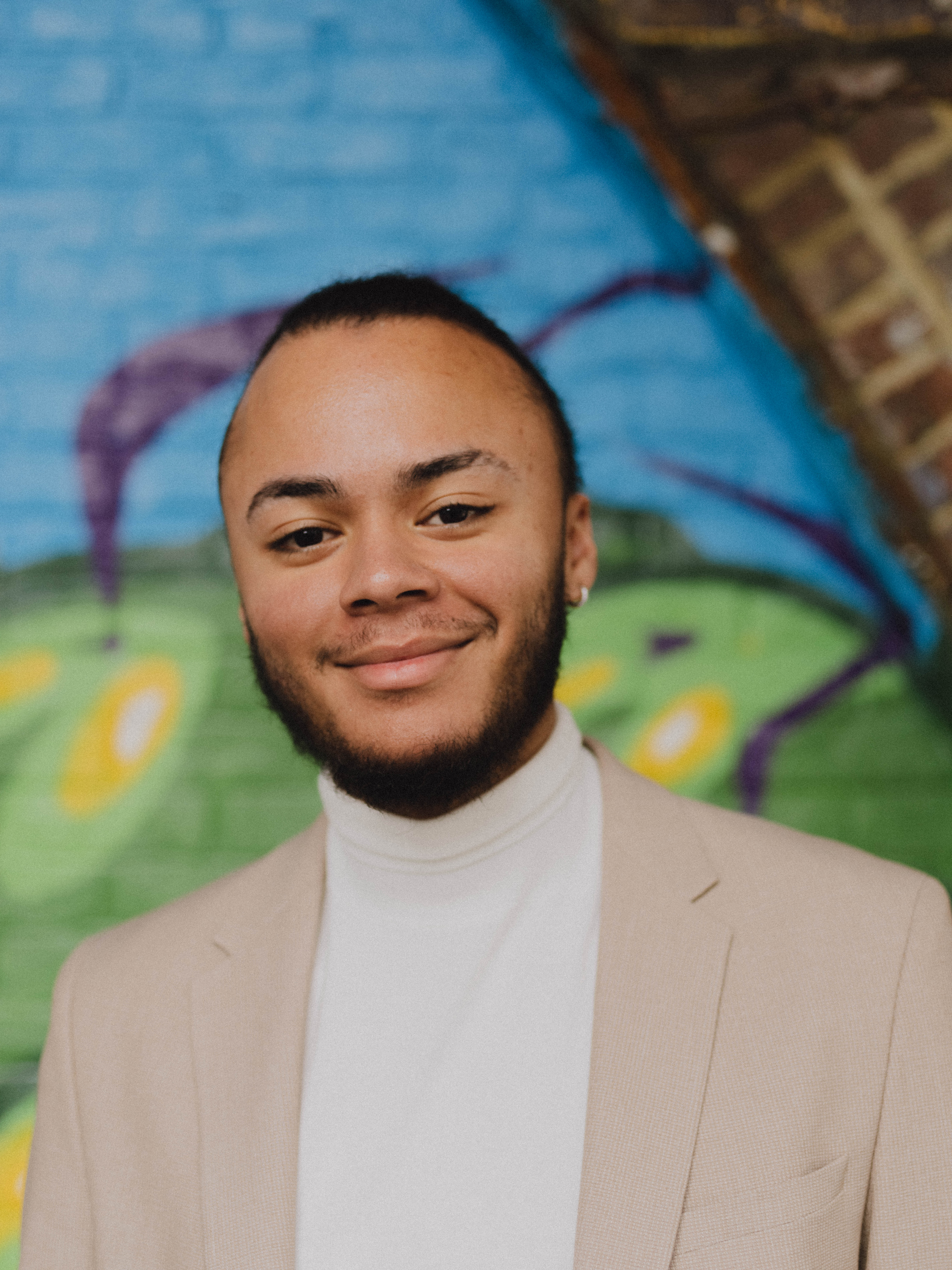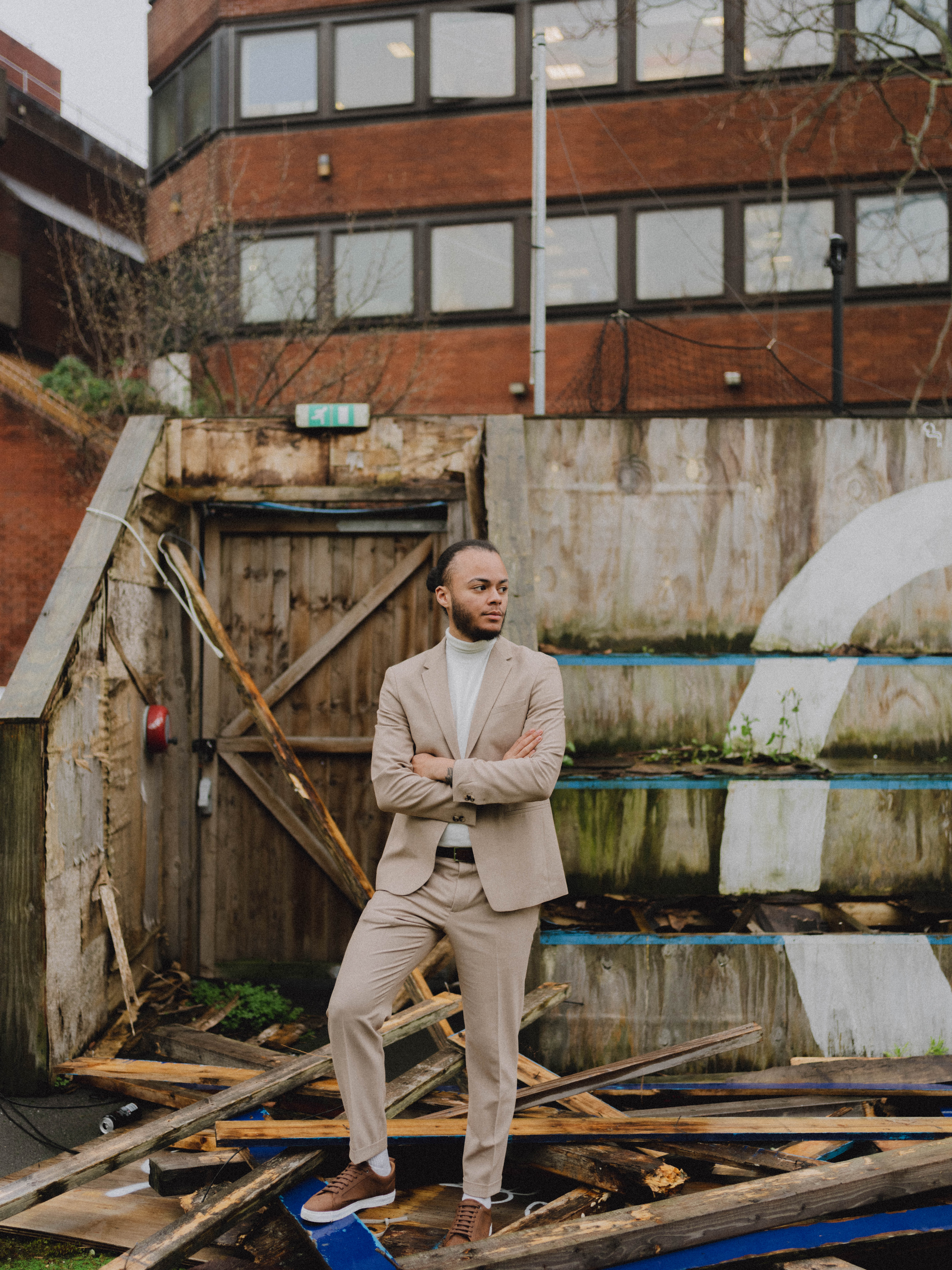“I can only stop when I’m no longer getting DMs from tenants”: How Kwajo Tweneboa is holding housing associations across the UK accountable

As someone who has lived in social housing his whole life, Kwajo Tweneboa knows the disregard shown to tenants across the country all too well. For 18 months, Kwajo and his family repeatedly asked housing association Clarion for repairs to their flat, which had no ceiling in the living room, vermin infestation, asbestos and mould. It was only when he took to Twitter to share a thread of pictures of their flat that Clarion finally responded and issued these repairs.
Over a year later, Kwajo continues to do this. But for social housing tenants across the country. Amid the ever-deepening housing crisis, his online campaign has consisted of him exposing local councils and housing associations with videos and images of some of the poor conditions that tenants are being forced to live in. Now with a large social media following, Kwajo is forcing these housing associations into action.

We met in Tulse Hill, and continued our travels to Brixton, where Kwajo spent a lot of his childhood growing up. He shared notable memories that he had in Brixton Village, going to the Ghanaian grocery trader with his dad and siblings. We later go to Southwyck House, on the Somerleyton Estate, a large housing building in Brixton that Kwajo mentions he had been meaning to visit. Southwyck House, locally known as “Barrier Block”, has long been criticised for its striking, brutalist architecture, with notably small windows. The recent Lambeth Labour manifesto states: “We’ll work alongside our tenants to complete our estate regeneration programme to build better homes for them”. Despite this pledge, there was no ballot on this proposed regeneration.
After meeting with the Secretary of State for Housing and Communities Michael Gove and the London Mayor Sadiq Khan to advise on policy changes, Kwajo is holding politicians to account. “They are meant to be there to represent you. With [local council] elections coming up, they’re gonna be knocking on your doors. So ask them what have they done internally in regards to housing? What have they done for you living in poor housing conditions?” he says. There is a level of accountability that his social media campaign demands which many MPs are afraid to face. Local authority elections are due to take place on 5th May 2022
“Because at the end of the day, right is right, and wrong is wrong. And I know in this situation, I’m right. What is happening to tenants is wrong”
The sheer power of social media is immeasurable, through what Kwajo has been doing and continues to do with his activism. When we met, one of his tweets had over a million insights. I asked him what his DMs were looking like, to which he responded “There’s thousands. I literally can’t reply to all of them, that’s how nuts it is.” This traction has only continued to grow – with his posts reaching an even larger audience. One big change since we spoke is that he has now been verified on both Twitter and Instagram – solidifying the global recognition of his work and position as a transformative social activist. Kwajo isn’t shy to let us know that this isn’t why he’s in it; his connection to his cause is closer than most.
“I always said that I’m willing to stand up against absolutely whoever I have to, no matter their title, no matter the name, no matter their status, no matter their celebrity status. Because at the end of the day, right is right, and wrong is wrong. And I know in this situation, I’m right. What is happening to tenants is wrong.”, Tweneboa says.

Despite the overwhelmingly positive response to Kwajo’s activism, there still exists a culture of respectability throughout British society which he is forced to grapple with. Those who receive social welfare, are marked as scroungers, ridiculed by the mass media. The roots of Britain’s housing crisis are directly linked to Margaret Thatcher’s government and the 1980 Housing Act, which gave tenants the right to buy their council properties. The culture of respectability leaves people living in social housing silenced, and ashamed of the poor conditions they often have to live in. Kwajo speaks about how he personally experienced the victim-blaming often targeted at those living in social housing when they reported poor living conditions. 17 per cent of households live in social housing – it is not uncommon. And it is provided for a reason.
The “welfare dependency” and “benefit scrounger” narratives are often used against those living in council housing, indicative of how tenants are demonised and tone-policed: “the lack of care, the inherent lack of care, it’s not a surprise.”, Kwajo states. He reflects on how he experienced this lack of care in social housing throughout his own upbringing. Tenants experiencing issues of vermin infestation or mould are often blamed for these poor living conditions, for ridiculous reasons such as ‘leaving clothes to dry indoors’ or ‘not opening the windows wide enough’.

“The housing associations send people called surveyors, which I’ve recently learned aren’t fully qualified or vetted for qualifications. They will send someone apparently qualified to a different job. So for example, my mum had a plumber come and paint the house. That’s why they tell you it’s your own fault. Open your windows is an excuse they like to use. Why? Because it costs them money to fix it.”, he mentions. Clarion, the housing association that manages Kwajo’s childhood flat on Mitcham Eastfields, saw a surplus rise by 29% to £100m, but according to their Annual Report and Accounts, “Clarion is not about making profits or holding onto money”. Kwajo, and many others, myself included, would clearly disagree with this statement.
When I ask Kwajo whether his younger self would have anticipated that he would be doing something for his community in this way, he laughs to himself: “No, not at all. I would have been like, what the hell? What are you talking about? I always in my head thought I’d be successful or something, didn’t know what. I didn’t think it would be this.” It’s inspiring to know that Kwajo has always known of his power. He mentions how he is in the final year of his Business university degree, which he is currently trying to balance with his activism : “It’s very long but I’ve managed to balance it so far. And I want to finish that so I can focus on my art more.” We go back to speaking about art throughout our conversations, with Kwajo sharing incredible future plans for artwork that he has in the pipeline.

What Kwajo is doing through his work is a gift not only to himself and his immediate community but to people neglected by the government nationally. He has started a candid, and shame-free conversation about social housing conditions online which will be so transformative for especially young people. Whilst speaking to him, I was filled with an overwhelming feeling of comfort, knowing that young kids will feel less ashamed to talk about their housing situations, or invite their friends over to their homes – something I could have only wished for.
Even in schools, talk to the kids – make it a conversation that people aren’t ashamed to have.”
Throughout his social media appearances, Kwajo has been transparent and outspoken about how his own social housing issues have impacted his mental health. He recognises how transformative it must be for kids growing up in social housing now, to experience this changing tide in public discourse. There is someone on the mainstream news and media platforms fighting their corner, empowering them to come into school and share their full lives with their friends, rather than being ashamed of where they live. “You have colleagues at work that live in poor housing. Even in schools, talk to the kids – make it a conversation that people aren’t ashamed to have.”, Kwajo urges, when I ask him what people can do to change the discourse around social housing.
As much as we strive for financial freedom and economic success, any given one of us is closer to poverty, houselessness, and living in poor social conditions than we are to any billionaire who tells us to simply ‘work harder’. There is not very much that separates us from any of the people that Kwajo features in his videos and threads.

Kwajo lightheartedly quotes Kelechi Okafor, actress and host of the “Say Your Mind” podcast, who has shown him support throughout his campaign. He will not stop until he “tears their (associations’) blouses”. Kwajo knows this won’t be a quick fix, but assures us that he is in it for the long run: “I need these housing associations’ accounts to know I have no intention of going absolutely anywhere until it’s sorted. So it’s in their best interest to do it sooner rather than later.”
The work that Kwajo does is urgent and necessary, and it is getting those in power to listen and act: “I’m sure I’m the biggest pain in their backsides at the moment. And I can’t tell you how glad I am because it’s about time someone was”.
Check out the GUAP Arts & Culture section, to discover new art, film, and creative individuals.




![ZINO VINCI’S ‘FILTHY & DISGUSTING’EP BRINGS YOU TO THE CORE OF THE ARTIST [@ZinoVinci]](https://guap.co/wp-content/uploads/2023/10/Zino-4.jpg)





![Remel London’s [@Remel_London] “Mainstream” is a must attend for upcoming presenters!](https://guap.co/wp-content/uploads/2017/02/REMEL-LONDON-FLYER-FINAL-YELLOW-COMPLETE-1.png)